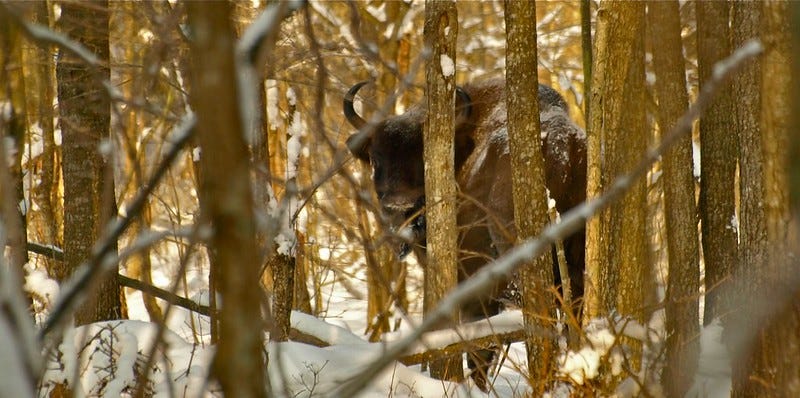News briefs: Bison and central banks
Plus, electric planes, and mapping methane leakage from city gas supplies

The bison are back
One hundred years ago, European bison were extinct in the wild and only about 50 could be found in sanctuaries or zoos. But now, as a result of long-term conservation management, the wild population of European bison has grown from around 1,800 in 2003 to over 6,200 in 2019, says the International Union for Conservation of Nature. The IUCN has released its latest Red List of Threatened Species, in which the bison, Europe’s largest land mammal, has moved from the category of Vulnerable to Near Threatened. “The European bison and 25 other species recoveries documented in today’s IUCN Red List update demonstrate the power of conservation,” said Dr. Bruno Oberle, IUCN director general. “Yet the growing list of extinct species is a stark reminder that conservation efforts must urgently expand. To tackle global threats such as unsustainable fisheries, land clearing for agriculture, and invasive species, conservation needs to happen around the world and be incorporated into all sectors of the economy.” There are now 128,918 species on the IUCN Red List, of which 35,765 are threatened with extinction.
Fed officially joins climate network
The Federal Reserve Board announced this week that it has formally joined the Network of Central Banks and Supervisors for Greening the Financial System, or NGFS, as a member. By bringing together central banks and supervisory authorities from around the world, NGFS supports the exchange of ideas, research, and best practices on the development of environment and climate risk management for the financial sector. The board began participating in NGFS discussions and activities more than a year ago. “As we develop our understanding of how best to assess the impact of climate change on the financial system, we look forward to continuing and deepening our discussions with our NGFS colleagues from around the world,” said Federal Reserve Board Chair Jerome H. Powell.
Analysis shows methane leakage from city gas supplies
The Gas Index, a new report and website published from the Global Energy Monitor, looks at methane leakage attributable to natural gas use in 71 cities across the U.S. “Our results show that gas is leaking throughout the system, with significant differences between cities in how large the emissions are, and where the emissions are coming from,” said Mason Inman, program director for gas at Global Energy Monitor and the leader of the Gas Index project. In addition to measuring methane leakage in oil and gas extraction areas, along gas transmission pipelines, and within cities — including inside homes and businesses, the report also estimates emissions reductions for electrification of residential and commercial heating in the cities analyzed, showing where building electrification to reduce reliance on gas can have a major impact. The 10 cities with the leakiest gas supplies are Indianapolis, Los Angeles, Phoenix, Miami, Oklahoma City, Okla., Orlando, Fla., Boston, Little Rock, Ark., Reno, and Tampa, Fla.
Electric planes? How air travel could decarbonize
While some airlines have started offsetting their contributions to atmospheric carbon, significant cutbacks are still needed, Scientific American reports, adding that electric airplanes could provide the scale of transformation required, and many companies are racing to develop them. In a recent piece headlined Electric Aviation Could Be Closer Than You Think, the publication notes that electric propulsion motors would eliminate direct carbon emissions and could reduce fuel costs by up to 90%, maintenance by up to 50% and noise by nearly 70%. Among the companies working on electric flight are Airbus, Ampaire, MagniX and Eviation. All are flight-testing aircraft meant for private, corporate or commuter trips and are seeking certification from the U.S. Federal Aviation Administration.
